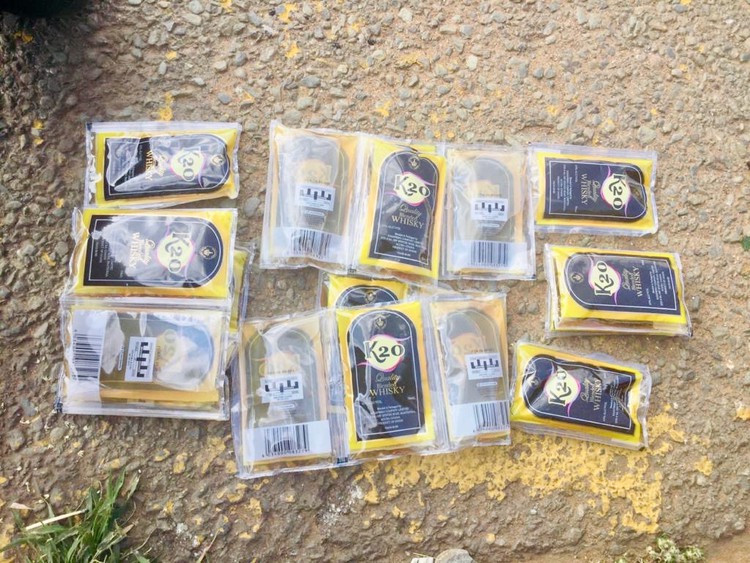
Alcohol Ban Creates Flourishing Black Market for Ghanaian Whisky
Paul* carries a small satchel on his back. You wouldn’t know that inside is a carton of cigarettes and sachets of whisky. He will sell them to informal miners in Payneville, Springs, and sometimes in Benoni. “Miners buy all the sachets; no questions asked. Sometimes l can go back into town [Springs] to buy stock […]

Paul* carries a small satchel on his back. You wouldn’t know that inside is a carton of cigarettes and sachets of whisky. He will sell them to informal miners in Payneville, Springs, and sometimes in Benoni.

“Miners buy all the sachets; no questions asked. Sometimes l can go back into town [Springs] to buy stock twice or thrice a day,” he says.
He prefers to sell to informal miners. They pay cash; many people in the townships ask to buy on credit.
Paul used to work offloading trucks and packing shelves at a supermarket. Then came the COVID-19 lockdown and the boss told him that only permanent workers would continue working.
“Just like that – they told me to stay at home and that they would call me after the lockdown, if they needed me,” he says.
With no income, he turned to the flourishing black market in tobacco and booze which has spiked due to the lockdown regulations.
The 50ml K20 whiskey sachets (43% alcohol) are a product of Accra, Ghana, and bought wholesale for R15 each, they are sold for R25 a sachet.
He also buys cigarettes for R400 a “brick” (carton) and sells it for R700, cash on delivery. For these he now has several clients in town houses in Springs. He does not like selling loose cigarettes as it draws too much attention.
So far, his sales have allowed him to make his rent of R1,200 and to send money to his wife and baby in Zimbabwe.
Hazvi has also turned to selling whisky sachets, buying them for R10 and selling for R30. She used to do sex work at a hotel in Springs, but it has closed due to lockdown. She still has a few clients, who come to her flat, and they buy whisky.
Ike, a Ghanaian, gets the whisky sachets from Johannesburg and sells them wholesale in Springs. He connects with his clients by mobile phone.
He owned a salon, but it closed. “Selling whiskey sachets and cigarettes is the only option l have at the moment,” he says.
His wife and two children depend on him.
Levi, a Malawian, used to plait dreadlocks at a street corner, but metro police chased him away. Some clients will come to his shack in Daggafontein for hair plaiting, but whisky is his new income.
“Now l only travel into town to stock the sachets. People come to me to buy. I do not have to go to them,” he says.
Rose, used to work at a chicken outlet, but it closed because of the pandemic. It has since reopened for deliveries, but she has not been told to return to work. She goes door to door in informal settlements selling the Ghanaian whisky sachets.
“The problem is that there are now too many of us selling these sachets,” she says. “At least l am able to pay rent. Maybe things will get better if they call me back at work.”
*Full names withheld to protect their identity.
This story, by Kimberley Mutandiro, first appeared on GroundUp.
